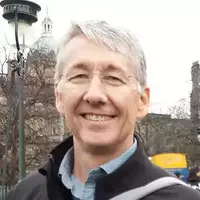Impact of InTeGrate materials on teaching beliefs and practices
Monday
2:00pm
REC Center Medium Ice Overlook Room
Oral Presentation Part of
Geoscience Education Research I
Authors
 David McConnell, North Carolina State University
David McConnell, North Carolina State University
 Michael Pelch, Washington State University- Pullman
Michael Pelch, Washington State University- Pullman
The NSF-funded InTeGrate project (http://serc.carleton.edu/integrate/index.html) seeks to develop, test, and disseminate geoscience educational resources for a variety of courses and disciplines so that they can provide the skills and information necessary for students to understand, plan for, and attempt to mitigate geoscience-related societal challenges. Teams of instructors were guided by pedagogy and assessment experts to create free online materials that can be readily deconstructed and reconfigured with local examples and materials to suit the needs of the specific instructor and/or learner.
All lessons feature specific learning objectives, student activities, feedback, and assessments. We observed multiple lessons taught by participating instructors and assessed instructional practices using the Reformed Teaching Observational Protocol (RTOP). RTOP scores indicated that instructors were implementing the materials as intended. Eighteen instructors participating in the InTeGrate project were administered the Teacher Belief Interview (TBI) before and after developing, piloting, and revising a two-week introductory geoscience module. The TBI is a semi-structured interview consisting of seven questions aimed at qualifying different aspects of an instructor's pedagogical beliefs. Coding and analyses of pre- and post-development interviews show a statistically significant improvement (p=0.009) toward more student-centered responses, with the greatest gains among participants with the lowest pre-development scores. Overall, these results suggest that participating in professional development opportunities employing collaboration, authentic exposure, and structured support can positively impact pedagogical beliefs.
We place this work in the context of theories of change models and discuss the implications of this work for instructors seeking to add new materials and practices to their courses.
All lessons feature specific learning objectives, student activities, feedback, and assessments. We observed multiple lessons taught by participating instructors and assessed instructional practices using the Reformed Teaching Observational Protocol (RTOP). RTOP scores indicated that instructors were implementing the materials as intended. Eighteen instructors participating in the InTeGrate project were administered the Teacher Belief Interview (TBI) before and after developing, piloting, and revising a two-week introductory geoscience module. The TBI is a semi-structured interview consisting of seven questions aimed at qualifying different aspects of an instructor's pedagogical beliefs. Coding and analyses of pre- and post-development interviews show a statistically significant improvement (p=0.009) toward more student-centered responses, with the greatest gains among participants with the lowest pre-development scores. Overall, these results suggest that participating in professional development opportunities employing collaboration, authentic exposure, and structured support can positively impact pedagogical beliefs.
We place this work in the context of theories of change models and discuss the implications of this work for instructors seeking to add new materials and practices to their courses.


